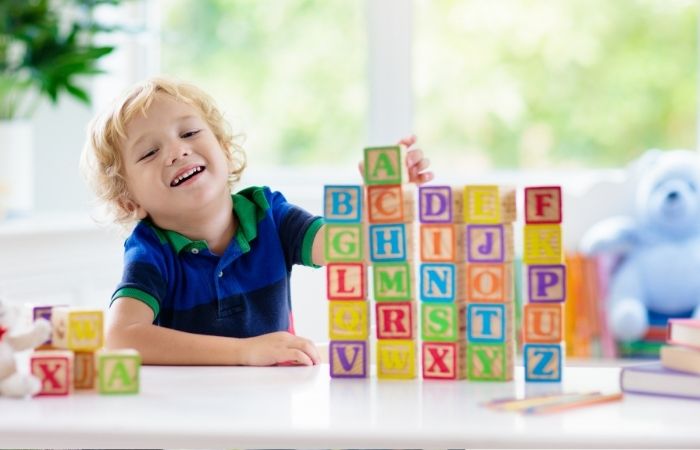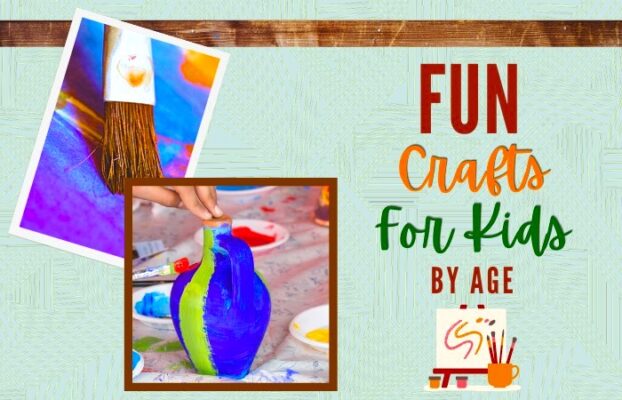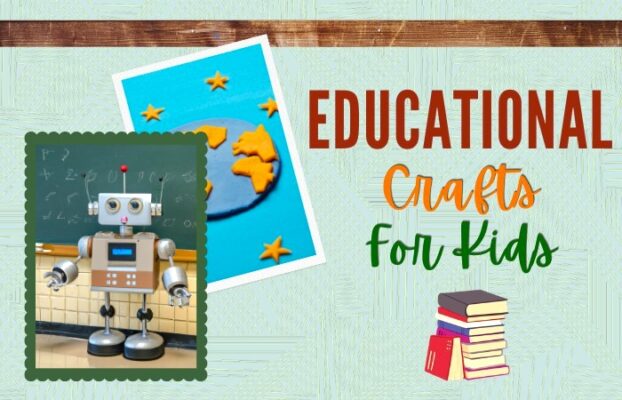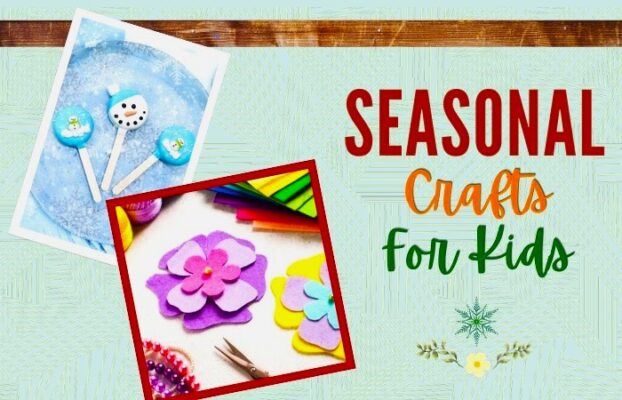Kindergarten is an exciting and formative time for young children as they start their educational journey. it’s essential to find engaging kindergarten activities that promote learning and creativity.
Kindergarten activities are like stepping stones paving the way to a lifelong love for learning. As I embarked on this delightful journey with my own little learner, I witnessed the transformative power of play. From hands-on projects, each moment became a testament to the magic of engaging activities.
Fun Kindergarten Activities
Kindergarten is a place where little minds blossom, imaginations soar, and the journey of education begins. And these 25 captivating kindergarten activities carefully crafted to engage your child
From playful experiments and colorful crafts, we’ve gathered a treasure trove of activities that will nurture your child’s growth in delightful ways.
So, grab your adventurer’s hats, dust off those creative wings, and join us on a voyage of interactive kindergarten activities!
Fun Kindergarten Activities
Looking for fun and educational activities to keep your second graders excited about learning? Well, you’ve come to the right place! In this article, we have curated a list of 23 engaging activities specifically designed for second graders.
We understand that keeping young learners entertained while fostering their academic growth can be a challenge. That’s why we’ve handpicked activities that will not only entertain your child but also enhance their critical thinking, creativity, and social skills.
From interactive science experiments to captivating reading exercises and exciting math games, we’ve got it all covered. These kindergarten activities are the perfect combination of education and entertainment, keeping your little learners engaged and excited about learning.
1. Build with Blocks
Encourage children to unleash their creativity by building structures with blocks. This classic activity enhances spatial awareness, problem-solving skills, and fine motor control.
2. Sensory Bins
Set up sensory bins with materials like rice, sand, or water. Children can explore and experience different textures while developing their sensory and imaginative abilities.
3. Alphabet Treasure Hunt
Hide plastic letters around the classroom or playground, and have children search for them. This activity helps develop letter recognition and letter-sound association.
4. Nature Walk and Scavenger Hunt
Take the class on a nature walk, and provide them with a scavenger hunt checklist to find items like leaves, rocks, or flowers. This activity promotes observation skills and a connection with the natural world.
5. Puppet Play
Foster creativity and imagination by providing puppets and encouraging children to put on their own puppet shows. This activity aids in language development, storytelling, and self-expression.
6. Math Manipulatives
Introduce math manipulatives, such as counting bears or pattern blocks, to help children understand mathematical concepts like counting, sorting, and patterns.
7. Dress-Up Time
Create a dress-up corner with costumes and props for children to engage in imaginative play. Dressing up promotes storytelling, social interaction, and empathy.
8. Science Experiments
Conduct simple science experiments, such as making a volcano or growing plants from seeds, to spark curiosity and encourage scientific inquiry.
9. Yoga for Kids
Incorporate kid-friendly yoga exercises into the daily routine to help children build strength, flexibility, and mindfulness. Yoga also promotes focus and self-regulation.
10. Shape Collages
Provide children with different shapes cut from colored paper and let them create collages by gluing the shapes onto a larger sheet. This activity enhances shape recognition and fine motor skills.
11. Musical Chairs
Arrange chairs in a circle, play some lively music, and have children dance around the chairs. When the music stops, they need to find a chair to sit on. This game promotes listening skills, turn-taking, and gross motor skills.
12. Dramatic Play
Set up a dramatic play area with props and costumes related to different occupations or scenarios, allowing children to role-play and enhance their imagination, language skills, and social interactions.
13. Puzzles
Provide age-appropriate puzzles for children to solve independently or collaboratively. Puzzle-solving improves problem-solving skills, spatial awareness, and hand-eye coordination.
14. Cooking Adventures
Plan simple cooking activities like making fruit salads or baking cookies. This hands-on experience promotes following instructions, measurement skills, and cooperation.
15. Outdoor Obstacle Course
Set up a fun obstacle course in the playground, incorporating activities like jumping, crawling, and balancing. This activity encourages gross motor development, coordination, and physical fitness.
16. Reading Buddies
Pair older students with kindergarten children and give them time to read books together. This fosters a love for reading, improves listening skills, and builds positive relationships.
17. Science Exploration Stations
Design different science exploration stations with hands-on materials, such as magnets, magnifying glasses, or water bins. Children can investigate and experiment, promoting scientific thinking and curiosity.
18. Name Recognition Art
Provide children with magazine cut-outs or foam letters, and let them create collages of their names. This activity reinforces letter recognition, name spelling, and fine motor skills.
19. Listening Games
Play games where children listen to and identify different sounds, such as animal sounds or musical instruments. This activity enhances auditory discrimination and listening skills.
20. Math Story Time
Read books that incorporate math concepts, like counting or patterns, and engage children in discussions and activities related to the stories. This promotes numeracy skills and critical thinking.
21. Dance Party
Have a dance party in the classroom, allowing children to move and groove to different songs. Dancing improves coordination, rhythm, and gross motor skills.
22. Rhyme Time
Explore rhyming words through songs, poems, and games. Rhyme recognition aids in phonemic awareness, a crucial skill for reading and writing.
23. Shape Scavenger Hunt
Give children a list of shapes to find around the classroom or school. They can identify and record the shapes they discover. This activity reinforces shape recognition and observation skills.
24. Sensory Art
Create art using various materials like salt, sand, or shaving cream, allowing children to explore different textures while expressing themselves creatively.
25. Number Bingo
Play number Bingo games, where children match numbers called out with numbers on their Bingo cards. This activity reinforces number recognition and improves concentration.
26. Science Read-Alouds
Read engaging science books to the class, discussing key concepts and conducting related experiments or observations. This activity instills a love for science and expands knowledge.
27. Outdoor Nature Art
Utilize natural materials like leaves, sticks, or flowers to create art in an outdoor setting. This activity combines creativity, mindfulness, and appreciation for nature.
28. Technology Exploration
Introduce age-appropriate educational apps or websites that allow children to explore various subjects while developing digital literacy skills.
That’s a wrap! We hope this list of 25 kindergarten activities has given you some fun and educational ideas to try out with your little ones. From sensory play to arts and crafts, there are so many engaging ways to help your child learn and explore.
More Tips On Kindergarten Activities
But wait, we’re not done yet! Here are three more tips to keep in mind when planning your kindergarten activities:
- Follow your child’s interests – If your child loves dinosaurs, incorporate dinosaur-themed activities into your learning plan. It doesn’t have to be all about traditional academics.
- Mix it up – Don’t be afraid to switch up the activities to keep things interesting for your child. Rotate different activities depending on their mood and energy levels.
- Let them lead – Encourage your child to take the lead in activities. It fosters their sense of independence and helps them develop problem-solving skills.
So, there you have it – our list of 25 kindergarten activities and some bonus tips to help you plan and execute fun and educational activities for your little ones. Remember, at this age, it’s all about learning through play and exploration. Have fun and happy learning!




